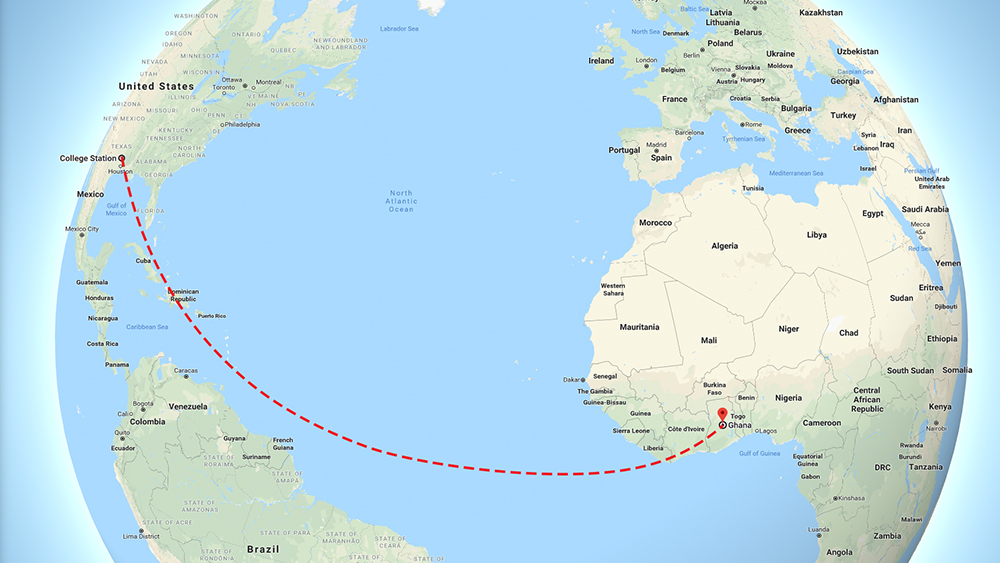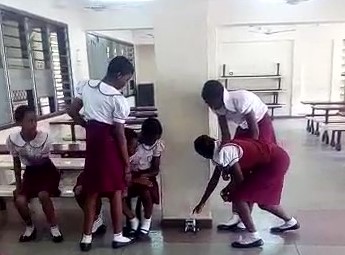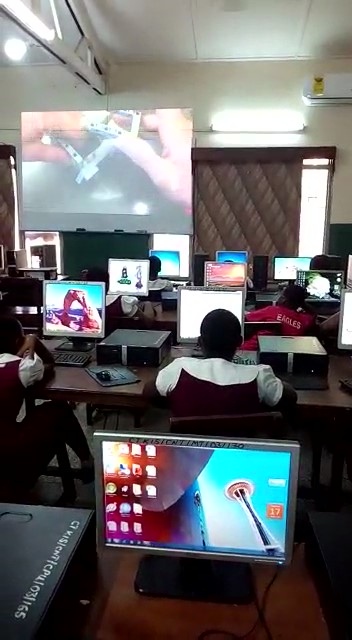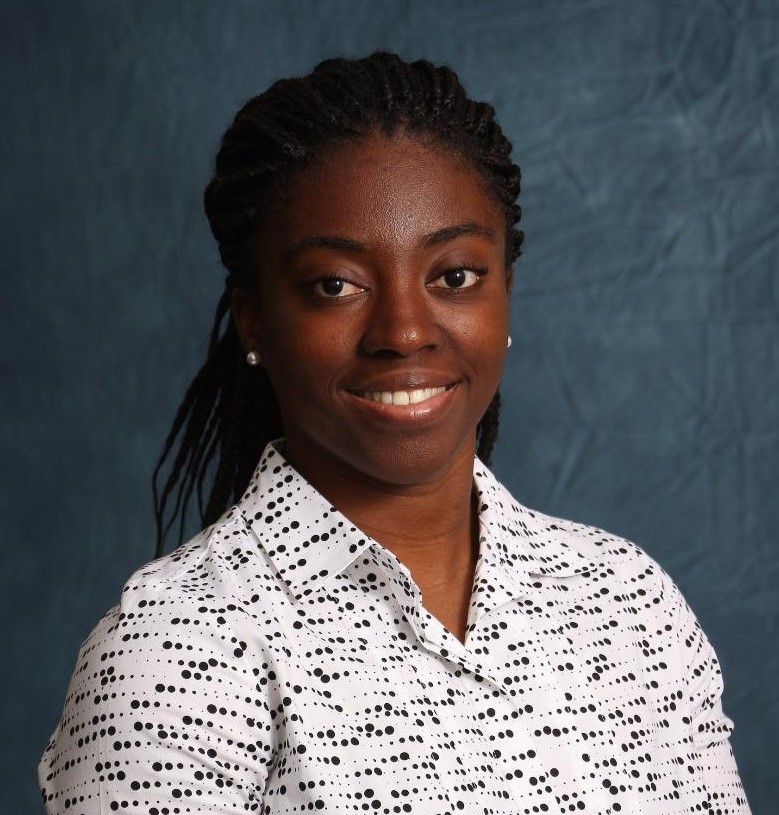
Dr. Judy Amanor-Boadu, an electrical engineering former student, is creating new STEM opportunities for girls in Ghana. Amanor-Boadu ’13 ’18 was inspired during her graduate studies at Texas A&M University to start a series of girls’ robotics clubs in her home country of Ghana. “I am motivated to provide to these girls what I did not receive and to see them succeed in their careers because they had this opportunity,” said Amanor-Boadu. She set out on her mission by sharing it with the Women in Engineering (WE) director, Shawna Fletcher, who gave her a Lego Mindstorm kit to take to the pilot school and gauge interest.

“WE has been supporting several all-girl FIRST (For Inspiration and Recognition of Science and Technology) Lego League teams locally for three years,” said Fletcher. “Judy saw their interest and wanted to start efforts to inspire young girls in Ghana. Judy has used her affinity for electrical engineering to mentor these students as well as our college-level women. She is a remarkable example of what girls can accomplish with a career in
“There has been an energy of excitement as this is completely new at the elementary and middle school levels,” said Amanor-Boadu, who traveled to Ghana in November 2017. “The pilot program is being carried out at Christ the King International School in Accra, Ghana. The headmistress and teachers welcomed this idea and have helped to teach and encourage the students to take part in it.” The one big problem is that interest from female students has been so overwhelming that some had to be turned away from the club. There just aren’t enough Lego robots for the girls to work on. As of now, there is only one Lego robot and 20 to 25 students are working on it.
It is imperative that there is a pipeline to produce engineers who will design and develop devices, tools and solutions that influence communication, access to information and the provision of humanity’s basic needs,

Introducing engineering
Growing up in Ghana, everyone Amanor-Boadu knew aspired to be a medical doctor. “That is still the case today,” she said. “There are very few conversations about engineering and the medical schools cannot accept every single student, so most students that end up in engineering are those that did not get admitted into medical school.” Amanor-Boadu believes that if the concepts of engineering are introduced to students at an earlier age, they will see how important it is for strengthening the economy, bridging the digital divide, improving human health and engendering democracy and peace. “It is imperative that there is a pipeline to produce engineers who will design and develop devices, tools and solutions that influence communication, access to information and the provision of humanity’s basic needs,” said Amanor-Boadu.
She also wants to improve the ratio of women to men in engineering. “In order to strive for a more equal balance, sparking an engineering interest has to be tackled at the elementary and middle school grade level to help them to see that that there are other professions.”
The Lego robots are especially valuable because they encompass mechanical, electrical and programming skills. They can be designed to solve a diverse array of problems, just by reconfiguring the structure and reprogramming it. These fundamentals help develop the critical thinking and problem-solving skills of the students.
The pilot program has shown great success and the future goals of the program are to first expand to more than one club in the pilot school. After that, the school will field a team to compete in FIRST Lego League to give the girls the opportunity to compete at the international stage. Then it can be extended to other schools in Accra and hopefully even the whole country.

Ties of affection
Amanor-Boadu received her bachelor’s and master’s degrees in electrical engineering from Kwame Nkrumah University of Science and Technology, Kumasi, Ghana in 2010 and Texas A&M in 2013, respectively. She recently graduated from Texas A&M with a Ph.D. in electrical engineering and is now working at Intel. At Texas A&M she received the Office of Graduate and Professional Studies George W. Kunze Endowed Graduate Award for research excellence. Part of her research included the creation of stand-alone solar power systems for Africa. She hopes her research will inspire the students to help solve the electricity problems Ghana faces.
Amanor-Boadu previously worked for the Texas A&M Women in Engineering (WE) program and was one of two graduate students hired to assist in developing programs to increase the retention of women in the College of Engineering. “I mentored the WE autonomous underwater vehicle team over a period of two and a half years to successful qualifications to semi-finals in the International RoboSub competition,” she said. “I love to see upcoming female engineers excited about their careers and seek to help develop their unique skills and talents.”
Her advice for female engineering students? “Never give up. Challenges will certainly come but others have blazed the trail before you, so there is the absolute possibility that you can make it. Continue to dream big and solve the world’s problems one step at a time.”
Diversifying STEM
Those interested in supporting Women in Engineering program efforts, please contact Shawna Fletcher, director (fletcher.234@tamu.edu) and those interested in supporting girls’ robotics clubs in Ghana please contact Judy Amanor-Boadu (judyboadu@gmail.com).